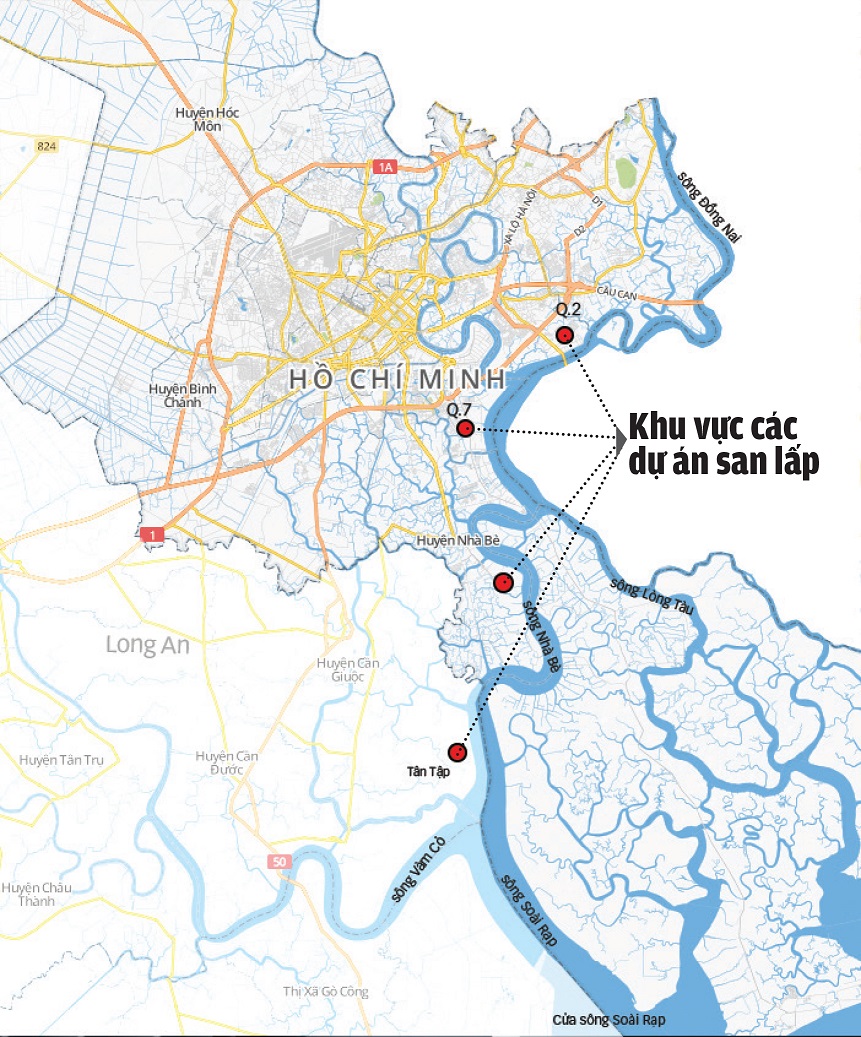A Vietnamese scientist is blaming human interference along the banks of a major river in Ho Chi Minh City for rising water levels.
Quoting his research, Dr. Bui Viet Hung, a lecturer from the environment department of the University of Science under Vietnam National University-Ho Chi Minh City, pointed out that wetland accretion by people along the Saigon River had caused its level to rise.
Accordingly, if 1,000 hectares of inundated land along the waterway is filled, the water level will increase by one centimeter, leading to an increased risk of flooding in the southern city.
Floods hit many of the city's districts whenever rain occurs during rising tides.
During an interview with Tuoi Tre (Youth) newspaper, Dr. Hung believed that keeping the natural landform along the banks of the river and its distributaries will help alleviate tidal flooding in the city.
Practical calculation showed that the destruction of wetlands brought about by human activities has had an enormous effect on the area and the severity of flooding, the academic elaborated.
According to the expert, wetlands adjacent to the riverbanks are of great significance, not only to local bio-diversity, but also to the regulation of tidal impacts on the waterway.
The area of inundated land along the Saigon River has been considerably reduced due to urbanization and the establishment of new industrial parks, which contributes to tidal flooding in Ho Chi Minh City.
Dr. Hung stated that the aim of his research is to preserve the natural wetlands and relieve the negative impact of rising tides in the southern hub.
He suggested the maintenance of 80,000 hectares of inundated land along the Saigon River, which will act as a regulator of tidal water.
More extensive studies should be carried out, the scholar asserted, adding that flood control projects alone cannot permanently solve flooding problems in the metropolis.
Like us on Facebook or follow us on Twitter to get the latest news about Vietnam!






















































